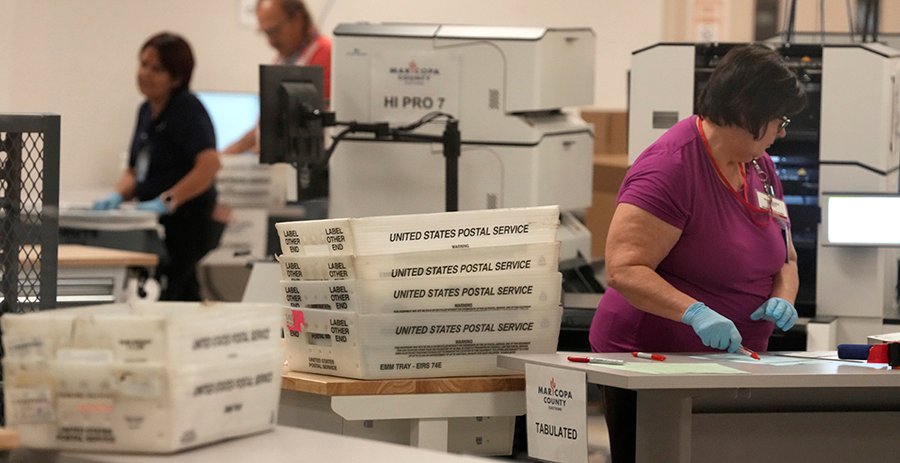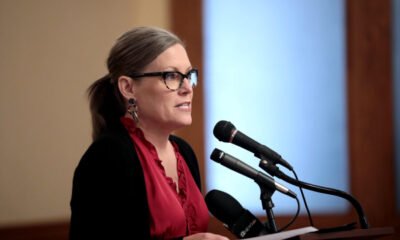election 2014
Quicker Election Results Bill Surges Forward as Democrats Push Back

A bill designed to expedite vote counting in Arizona has successfully cleared its initial hurdle as the Senate Judiciary and Elections Committee approved it 4-3 on January 15. The legislation, known as SB1011, aims to eliminate the option for early ballots to be delivered on Election Day, instead requiring voters to drop them off by 7 p.m. on the Friday prior to elections.
Recent amendments to the bill have altered several provisions. Voting locations will no longer be required to remain open on the Saturday and Monday before Election Day for early in-person voting. Additionally, the bill permits county recorder offices to send ballots as much as 29 days before an election, an update from the previous stipulation of 27 days.
Among the proposed changes is an initiative prohibiting public school principals from rejecting requests to use their schools as polling sites. Furthermore, voters may present identification options rather than needing to verify their ballot signatures, streamlining the voting process.
This bill aligns with a broader Republican movement aimed at emulating Florida’s electoral efficiency, with the goal of delivering results on election night rather than prolonging the wait for days. Concurrently, the House ad hoc Committee on Election Integrity convened to discuss a resolution exploring voter preferences for a Florida-style electoral system.
Representative Alexander Kolodin, R-Scottsdale, has also proposed HCR2013, which echoes the Senate bill’s plan to shift the early ballot drop-off deadline to the designated Friday before elections. This measure would introduce a unique voter ID number for early voters, thereby expediting verification while addressing concerns over inconsistent signatures.
However, one of Kolodin’s proposals to require early voters to confirm their addresses with county recorders prior to every election may face challenges, as election officials have expressed reservations about its feasibility, given the complexities involved in implementing such a practice.
Critics of the Florida-inspired approach argue it may restrict access to voting, particularly in rural regions. These critics emphasize the potential for confusion among voters and the lack of provisions for unforeseen circumstances that may prevent timely ballot drop-offs, such as issues with identification.
Concerns have also been voiced regarding the impact on individuals with disabilities who may rely on caregivers for ballot drop-off. In defense of the bill, Republicans assert that adequate time will be allotted for voters to return their ballots.
Senate President Warren Petersen, who sponsored the bill, testified about the urgency for quicker election results, framing it as a response to constituents’ frustrations. He noted the volume of complaints he has received on this issue, highlighting a desire for Arizona to achieve timely electoral results.
Senator Analise Ortiz, D-Phoenix, countered, stating that the push for speed should not compromise voter access. Ortiz labeled the bill an aggressive measure that complicates the ballot drop-off process, questioning the necessity of expediting results at the potential expense of accessibility.
While Democrats propose their own solutions aimed at improving election efficiency—such as extending in-person voting and increasing resources for county election offices—supporters like Maricopa County Recorder Justin Heap advocate for measures that strengthen the security and integrity of elections.
In contrast, Pima County Recorder Gabriella Cázares-Kelly raised concerns regarding accessibility issues, particularly for rural voters with limited access to polling facilities. She highlighted the lack of drop boxes in Pima County, echoing worries about the reduced timeframe for ballot returns in less populated areas.


















